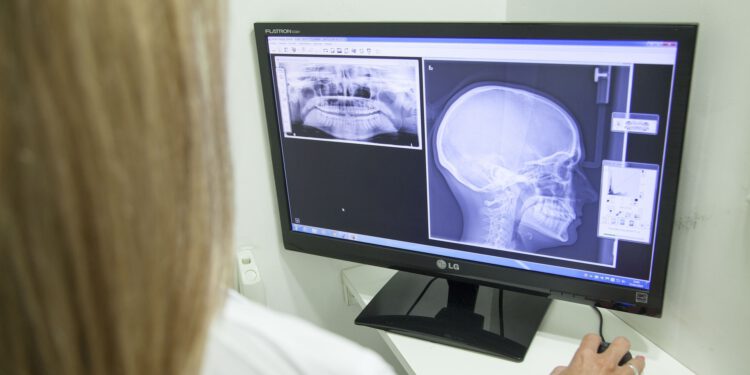An artificial intelligence program achieves greater accuracy than top doctors in China when it comes to diagnosing brain tumors. China’s artificial intelligence plan for 2030 envisages that this technology will help alleviate the shortage of doctors in the country.
The medical capabilities of artificial intelligence have been evident for years. Perhaps the best known case is that of IBM’s Watson supercomputer, which some hospitals already use to fine-tune the prescription of treatment to patients.
However, the diagnosis represents a leap from what was done until now. There are several researches that have developed artificial intelligences capable of accurately diagnosing serious diseases. But to date all these efforts are experimental. So is that of the scientists of the Artificial Intelligence Research Centre For Neurological Disorders from Beijing Tiantan Hospital. But in the experiment one guesses the aspiration to be useful soon.
These researchers have created the BioMind program, capable of diagnosing certain diseases through image analysis. To prove its value, a kind of competition was organized. A team of 15 doctors, among the most prestigious in China, took on artificial intelligence. Objective: diagnose brain tumors and the expansion of a subdural hematoma.
The results have been clearly favorable to artificial intelligence. With regard to the diagnosis of brain tumors, BioMind was right in 87% of cases. Doctors remained at a significantly lower percentage: 66%. In this field it is interesting to add that the program took only 15 minutes to diagnose 225 cases; while the doctors took 30 minutes.
The expansion of subdural hematoma (accumulation of blood under the membrane that covers the brain) has been the other test. BioCind correctly diagnosed up to 83% of cases based on the images. With the same information, the doctors achieved a 63% success rate.
AI as a tool for doctors
The heads of the Beijing Tiantan Hospital, where the team of researchers who have developed the artificial intelligence algorithm comes from, have pointed out that the idea was familiarize doctors with the benefits of artificial intelligence. They noted that there are many practitioners in China who do not trust this technology.
When facing the most prestigious doctors in the country with BioCind the purpose was to compare. In this way, it is clear that artificial intelligence can diagnose at least at the same level as the best.
In this scenario China has done intensive work to demonstrate this thesis. A few months ago it was learned that a robot had passed the exam to practice medicine in the country. This test is the one that certifies that the professional has the necessary knowledge to become a doctor in China.
Moreover, China’s artificial intelligence plan for 2030 envisages that this technology will help alleviate the shortage of doctors in the country. Rural areas do not always have access to a doctor and AI could perform certain surrogate functions.
Images: AlarconBenthos, TheDigitalArtist









